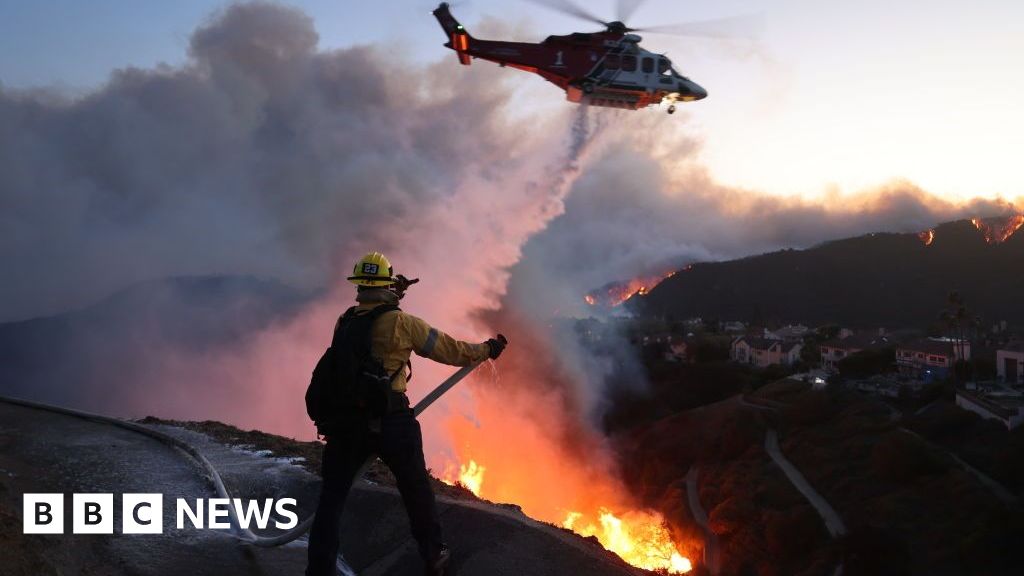Mystery surrounding the U.S. Ambassador: Why is Libby leaving Baku? – https://t.co/MVVwjP6qOq https://t.co/lQw79ZdP1A
— Michael Novakhov (@mikenov) January 8, 2025
Day: January 8, 2025
|
Michael_Novakhov shared this story from |
The main arguments revolve around alleged violations of human rights, media freedom, electoral rights, and the imprisonment of journalists and human rights activists.
On December 10, marking International Human Rights Day, the U.S. State Department awarded the Secretary of State’s Human Rights Defender Awards to prominent human rights advocates from several countries. Among the recipients were Rufat Safarov, an Azerbaijani human rights defender and co-founder of the “Defense Line” organization, and Sevin Vagifgizi, editor-in-chief of “Abzas Media.” Antony Blinken praised both individuals during the ceremony.
The Secretary of State also directed harsh criticism at the Azerbaijani government, accusing it of human rights violations.
The pressure against Azerbaijan is being coordinated at the highest levels in the U.S., with Blinken personally spearheading the campaign. Western diplomats and politicians frequently use the pretext of democracy and human rights to exert pressure on nations—a tactic that has been seen repeatedly over the past three decades.
The increasing pressure on Azerbaijan stems from several reasons. Chief among them is the response to the liberation of Karabakh and surrounding regions. Many Western countries, led by the U.S., have struggled to accept this reality.
Another significant factor is Azerbaijan’s firm stance against Washington’s preferences in the ongoing peace talks with Armenia. The Aliyev administration has openly opposed Blinken’s peace initiatives, a position that has angered the State Department and the Biden administration. The U.S. is acutely aware that it may lose ground in the South Caucasus to the Russia-China alliance. Hence, it is working tirelessly to maintain control over processes in Yerevan, Tbilisi, and Baku.
Azerbaijan’s leadership role in regional and global processes since the 44-day war, coupled with its growing influence and strategic importance as a bridge between Asia and Europe, has heightened tensions in Washington. Plans surrounding the Zangezur Corridor further explain the aggressive and unjust attitude of the U.S. and EU toward Azerbaijan. The desire to secure a foothold in the geopolitical “corridor wars” is driving both Washington and Brussels to extremes.
These and other factors are compelling the West to take preemptive measures, fearing it may be too late in the future. They recognize that Azerbaijan is on the path to full independence and that no global power will be able to dictate terms to it in the next phase.
President Ilham Aliyev’s precise and deliberate foreign policy is yielding results. Baku’s influence is now being felt as far as the Middle East, where significant alliances are reportedly being formed. Agreements with Israel, a regional leader, have also been highlighted, as evidenced by Presidential aide Hikmet Hajiyev’s recent visit to Israel. Consequently, the U.S. and its European satellites are systematically striving to keep Baku under pressure.
Deputy Secretary of State for Human Rights, Dafna Rand, touched on these points in an interview with the “Turan” News Agency. She explicitly stated that Washington would increase its pressure on Baku and continue to support civil society in Azerbaijan, despite the government’s objections.
In her words: “Despite Baku’s dissatisfaction, the U.S. will continue to support civil society in Azerbaijan.” Rand also highlighted the work of the U.S. Ambassador to Azerbaijan and a key embassy staff member on human rights issues, emphasizing their dedication.
She stated: “We have a very good ambassador in Azerbaijan, Mark Libby, who has prioritized human rights during his tenure in Baku.”
Rand went on to discuss the embassy’s human rights officer, who recently completed their service, noting their contributions to highlighting the dire conditions of human rights defenders, journalists, lawyers, and prisoners, particularly during COP29.
It’s worth noting that Ambassador Mark Libby recently announced his departure from Baku, citing health reasons, with reports suggesting he is battling cancer. However, some speculate that his departure may also have political motivations. Experts argue that it’s unlikely his early departure is solely due to health issues.
Rand’s remarks reinforce this suspicion, suggesting Libby may have been involved in activities that displeased the Azerbaijani authorities, known for their intolerance toward foreign ambassadors’ interference in domestic matters. Since 2006, U.S. ambassadors to Azerbaijan have generally avoided meddling in politics or internal affairs. Libby’s departure raises questions about whether his actions diverged from this longstanding practice.
Notably, Libby had previously stirred controversy in May by declining to visit Shusha, citing an unwillingness to participate in what he referred to as a “show.” This statement sparked public outrage in Azerbaijan, with President Aliyev responding directly from Shusha: “The visit of any ambassador to Shusha should not be presented as a favor to us. If they wish to come, they may, and if not, we don’t need them. Their presence or absence changes nothing. We are the ones who hold authority here.”
This is not the first time a U.S. ambassador has left Azerbaijan prematurely. In 2006, former Ambassador Reno Harnish departed abruptly, reportedly declared persona non grata due to alleged interference in Azerbaijan’s internal affairs, including accusations of involvement in a failed revolution attempt during the 2005 parliamentary elections. At the time, it was reported that compelling evidence was presented to the U.S., leaving no choice but to recall Harnish.
History, it seems, often repeats itself.
Azer Aykhan
Translated from Globalinfo.az
On December 10, marking International Human Rights Day, the U.S. State Department awarded the Secretary of State’s Human Rights Defen
US Ambassador to Azerbaijan Mark Libby announces retirement from diplomatic service – Public Radio of Armenia https://t.co/ch6U1EPQUw
— Michael Novakhov (@mikenov) January 8, 2025






